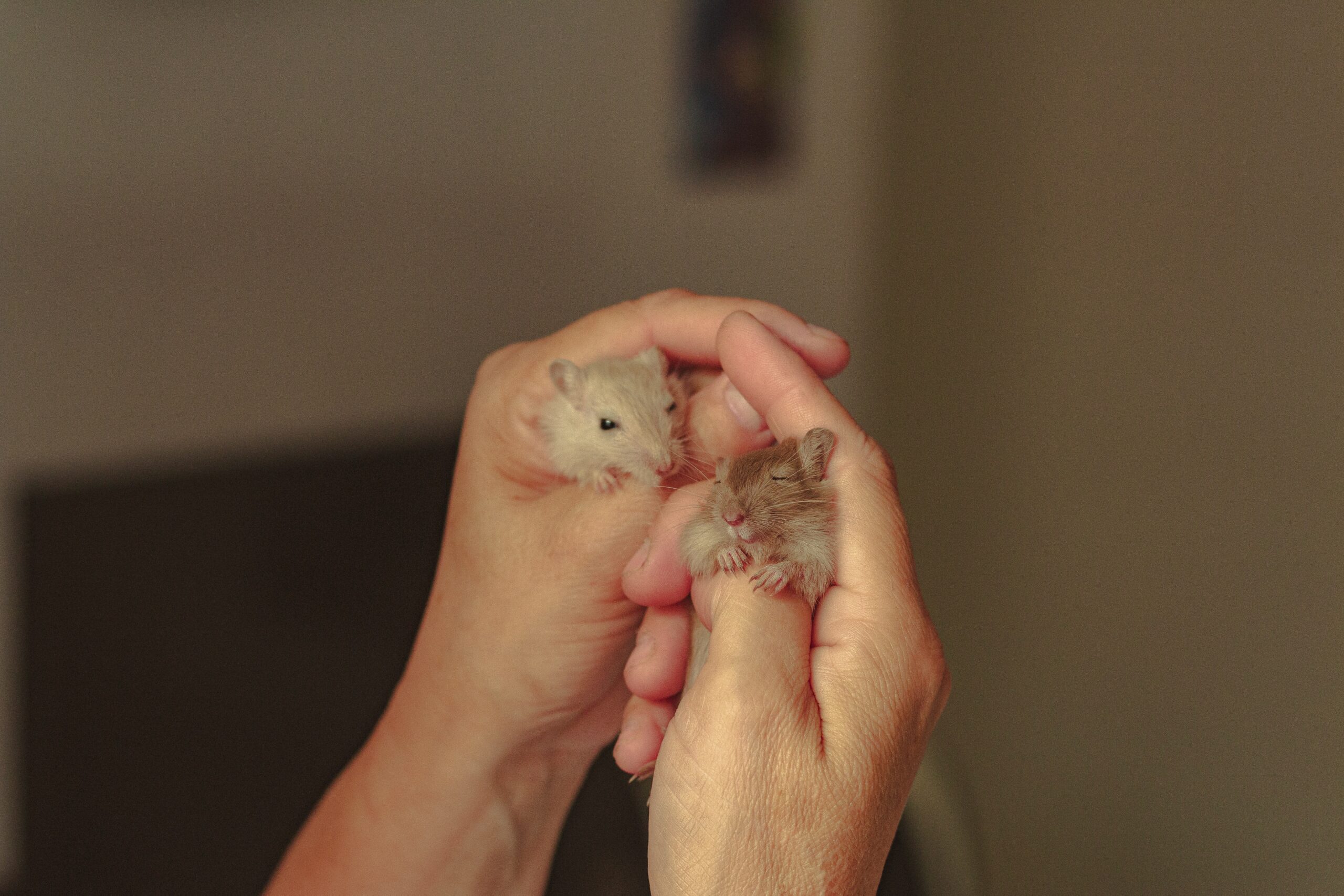Hey there, it’s your boy Matt here, and I’ve got a funny story to tell ya about my first experience with baby hamsters.
So, I was at the pet store with my little sister, and she was begging me to get her a hamster. I was hesitant at first, but she was just too darn cute, so I caved in.
We got the little guy (or girl, I never did find out) and brought it home. My sister named it “Fluffy” and we were both super excited to play with it.
So, we set up the cage and all the fixin’s, and my sister picked up Fluffy to give it a little snuggle. Next thing I know, she’s screaming and drop-kicking the hamster across the room.
I was confused, and a little scared, until I saw the little bugger had chomped down on her finger. I couldn’t help but laugh, even though my sister was in tears.
But, in all seriousness, do baby hamsters bite? Well, let me tell ya, the answer is a big ol’ “Yup.” But, it’s not just baby hamsters that bite, adult ones do too.
But don’t worry, I’m gonna break it down for ya and give ya the lowdown on why they bite, how to prevent it, and how to deal with it if it happens.
In short: Yes, baby hamsters can bite, but there are ways to prevent and deal with it.
Table of Contents
Why Do Hamsters Bite?
There are a few reasons why hamsters might bite. One of the main reasons is fear. Hamsters are prey animals, and they’re naturally skittish. If they feel threatened, their first line of defense is to bite.
Another reason why hamsters might bite is because they’re in pain. If they’re sick or injured, they might bite as a way of telling you to back off.
Lastly, they might bite because they’re being territorial.
Hamsters are solitary creatures, and they don’t like to share their space. If they feel like their cage or their food is being invaded, they might bite to protect it.
How To Prevent Hamsters From Biting
The best way to prevent your hamster from biting is to give it plenty of space and to handle it gently.
Make sure their cage is big enough for them to move around and have their own space.
When you handle your hamster, do it gently and slowly.
Let them sniff your hand before you pick them up, and make sure you support their whole body when you do.
Also, never grab them by the tail, it can hurt them and they might bite you.
How To Deal With A Biting Hamster
If your hamster does happen to bite you, don’t freak out. Just calmly put them back in their cage and give them some space.
It’s important to remember that your hamster is just trying to protect itself. If it’s biting because it’s scared or in pain, give it some time to calm down before you try to handle it again.
If your hamster is biting because it’s being territorial, try to give them more space in their cage and make sure they have plenty of things to keep them occupied, like toys and hiding spots.
FAQ
Are baby hamsters more likely to bite than adult hamsters?
Not necessarily. Baby hamsters can be just as skittish and territorial as adult hamsters, but they might not have learned bite inhibition yet.
So, it’s possible that they might bite harder or more frequently than an adult hamster.
What should I do if my hamster bites me?
If your hamster bites you, don’t panic. Simply put them back in their cage and give them some space. Clean the bite wound with soap and water and if you are concerned, contact your doctor.
Can a hamster bite make me sick?
There’s a small chance of infection from a hamster bite, but it’s not very likely. Just make sure to clean the wound well and keep an eye on it for any signs of infection.
How long does it take for a hamster bite to heal?
A hamster bite should heal within a week or two. If you notice any signs of infection, contact your doctor.
My conclusion,
Hamsters are cute and fluffy, but they can also be feisty little critters. And when it comes to baby hamsters, they can bite.
But, it’s not just baby hamsters that bite, adult ones do too. But don’t worry, now you know why they bite, how to prevent it, and how to deal with it if it happens.
So, go forth and enjoy your little ball of fluff, just be gentle and mindful of their feelings.
